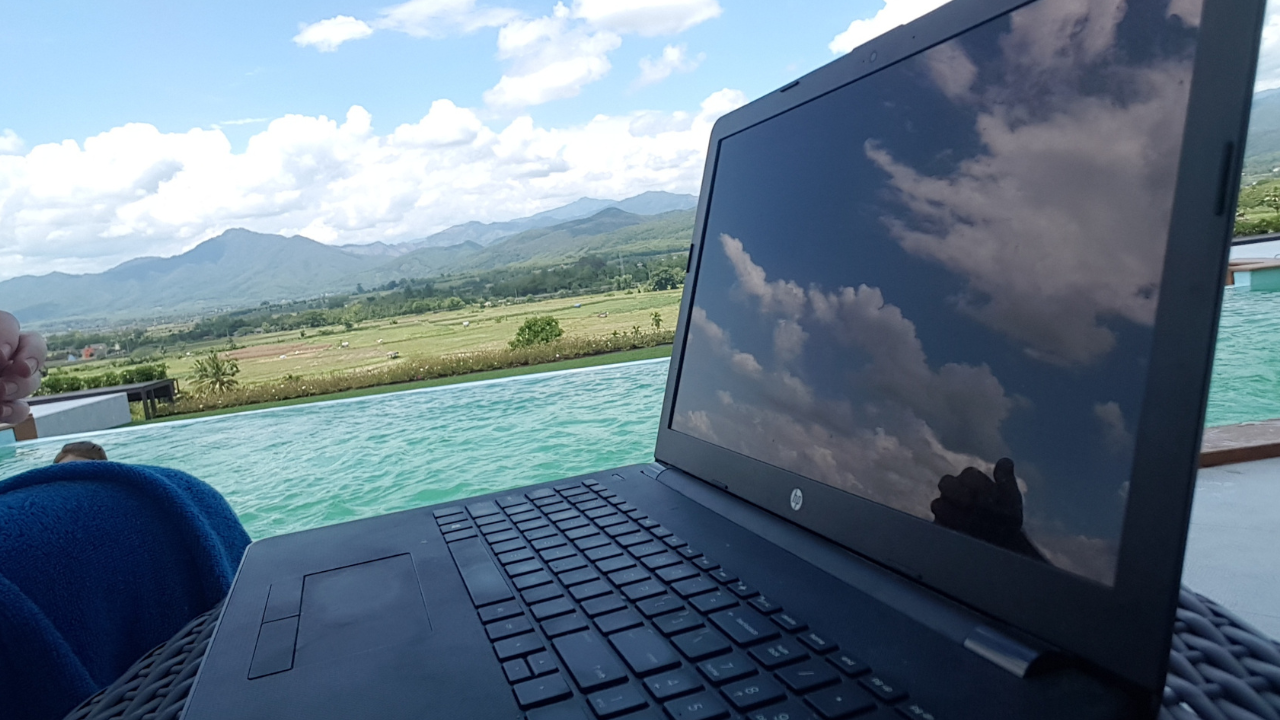Language:
Take Control of Your Finances: Tax Deductions for LLC Owners

Every dollar that you save for your business supports your ambition to scale it to new heights. Cutting corners on business spending is hardly the best way to go about it. There’s one way to achieve the desired outcome that many small business owners overlook and that’s to take full advantage of the available tax deductions for LLC owners.
The concept of deductions or tax write-offs is simple enough. These are expenses that you can deduct to lower your taxable income, that’s the income you pay tax on. If you have lower taxable income, that means you pay a lower amount of tax and thus have more money on your hands to reinvest in the business.
Who Can Claim LLC Owner Tax Deductions?
Common tax deductions are available to all business entities, including self-employed businesses, set up as sole proprietorships, partnerships, and limited liability companies. Since the limited liability company is a pass-through entity for taxation, it means that the entity itself doesn’t file a corporate tax return with the IRS.
The profits of the LLC pass through to the owner which means that you, as the LLC owner, have to pay tax on the earnings. You’ll report the profits and claim any deductions for the LLC as part of your overall taxes for the year.
Common Tax Deductions for LLC Owners
Tax season is stressful enough and the added responsibility of having to pay taxes doesn’t make matters any easier. Knowing which deductions are available to you and how you can claim them will potentially save hundreds, if not thousands, of dollars, come tax time. That leaves more money for you to invest in the business and take it to new heights. Following are some of the most common tax deductions that LLC owners can claim.
Vehicle Use
Expenses related to the use of a vehicle for business are deductible in their entirety if the vehicle is used solely for business. However, if you use it for both personal and work trips, then you can only deduct the costs incurred on business trips.
The easiest method of claiming this deduction is through the standard mileage rate that the IRS provides. You just need to multiply the miles driven for business in the year with the rate, which is $0.655 per mile for 2023 and $0.67 per mile for 2024.
The actual expense method is a bit complex. It requires you to track every individual expense, from gas to oil changes, maintenance to insurance, and more. These expenses then have to be multiplied by the percentage of miles driven for work trips. Keep in mind that you can’t switch between these methods for the same vehicle.
Depreciation
You’ve likely purchased different business assets, such as furniture, equipment, and other items. You can deduct depreciation to lower your final tax bill. The de minimis safe harbor election enables you to expense assets priced below $2,500 per item in the year they’re bought, allowing you to write off the full cost in the first year.
There are some technicalities that you should keep in mind when claiming depreciation deductions. For example, there’s the possibility to claim bonus depreciation for writing off 100% of the cost of furniture, machinery, equipment, and other items. It’s best to work with a professional to ensure that your asset is fairly valued and the deduction is appropriately calculated.
Home Office
If you conduct business from a home office, regardless of whether you own or rent the home, you’re entitled to claim a deduction based on that. There’s the simplified method which lets you deduct $5 per square foot of the area in your home used for business, up to 300 square feet. This puts the maximum available deductible under this head to $1,500.
You can claim beyond this limit using the standard method which requires tracking all expenses of running a home office. It includes mortgage interest, real estate taxes, homeowners association fees, repairs, and other general expenses. They then have to be multiplied by the percentage of your home that’s used to conduct business.
Business Meals
Meals can be claimed as deductions but only under specific circumstances. Personal meals at your desk aren’t eligible. You can only claim business meals and only then 50% of the cost can be claimed. An eligible meal would be one that you’ve had with a client, employee, or otherwise in pursuit of some business objective.
It’s possible to deduct 100% of the costs in specific cases. For example, if you’re someone who reviews restaurants for a living, then the cost of meals would be entirely deductible. Food for employee events, refreshments for customers, etc. are also eligible to be entirely deducted.
Business Travel
You can deduct travel expenses for work trips, including flight tickets, hotels, transportation, and other relevant expenses. However, there are specific requirements that the trip must meet to be considered a business trip. It must have been a necessary trip for business and away from the general vicinity where you do business.
The trip must be longer than one day to be eligible and require rest or sleep en route. It’s important that you keep records of all expenses made on the trip as well as the business reason, as the IRS will ask for these details to see if the claim is justified if you ever get audited.
Self-Employment Tax
As an LLC owner, you’re required to pay the full self-employment tax which includes contributions for both Medicare and Social Security. Based on prevailing rates, this contribution is 15.3% in total, with 12.4% for Social Security and 2.9% for Medicare. An extra 0.9% Medicare tax will also need to be paid if you have income above a certain threshold.
For example, if your income is more than $250,000 if you’re married and filing jointly; $125,000 if married but filing separately; or $200,000 if you’re single. Then you’ll be required to pay the additional 0.9% Medicare tax as you’re above the threshold. As for the deduction, you can deduct half of the self-employment tax paid.
Business Insurance
It’s important for businesses to have insurance. It protects them from unforeseen events and provides financial cover. The premiums paid for business insurance can be claimed as a tax deduction to lower your taxable income.
Premiums can be claimed as a deduction for many different types of business insurance, including but not limited to workers’ compensation coverage, auto insurance for business vehicles, general liability insurance, life insurance for employees excluding the business owner, malpractice insurance, etc.
Contract Labor
There may be times when you need to hire outside contractors for your limited liability company. Even that can be treated as a tax deduction, as long as they’re not employees and you’re only contracting with freelancers or independent contractors to assist with a task related to your business.
The fee that you pay to contract labor can be deducted as a business expense. Do keep in mind that if you pay a freelancer or contract $600 or more during the tax year, you’re required to send them a Form 1099-NEC by January 31st of the subsequent year, as they’ll need that form when filing their own tax return.
Business Expenses
You’ll incur a lot of capital expenses when setting up your business. These will include the costs for setting up your limited liability company, fees paid to professionals like a lawyer and accountant, trademark registration fees, etc.
You’re entitled to deduct the startup costs during the first active year of the business. However, the deduction can only be up to $5,000, provided your total cost of starting the business is $50,000 or less. The deductible decreases if your cost is over $50,000 and the remainder would then be deductible over 15 years.
Marketing Expenses
Businesses need to spend a lot of money on marketing to expand their customer base and increase brand awareness. Fortunately, since this is deductible, businesses can rely on the added benefit of a lower tax bill while spending considerable sums of money to promote their products and services through conventional and digital marketing.
A tax credit can be claimed for marketing expenses including ad spend on online media platforms like Google, Facebook, Instagram, and others, promotional events, ads on TV, radio, newspapers, and magazines, as well as sponsorship activities.
Expenses that LLC Owners Cannot Claim as Tax Deductions
It’s as important to know what expenses can’t be claimed as tax deductions because the IRS doesn’t like it when taxpayers claim deductions they’re not entitled to. That’s one of the most common reasons why the IRS opens up an audit so such attempts are best avoided, even if they were made inadvertently.
Campaign Contributions
Donations or contributions to political causes, including lobbying or campaigning, can’t be claimed as a reasonable business expense and thus can’t be deducted from the overall taxable income.
Life Insurance Premiums
Premiums paid for life insurance or disability insurance in the name of the business owner aren’t considered a business expense, so they can’t be claimed as a deduction even if you’re self-employed.
Fines and Penalties
If you’ve received fines and penalties from a government agency, such as a parking ticket, it can’t be written off.
Federal Taxes
While it’s possible to deduct state and local taxes to some extent, you can’t do the same for federal taxes.
How to Prepare for Tax Filing and Monitor Tax Deductions for LLC Owners?
There’s some diligence required on your part when figuring out which deductions you can claim. Effective preparation is necessary to ensure that all the claims are justified and that you don’t run the risk of an IRS audit.
Recordkeeping
You must be able to justify every deduction that you’re claiming. The IRS can ask you to provide records to prove the same. So retain records of every bill and receipt for a business expense as that will enable you to provide proof should the IRS ever demand it.
Seek Professional Advice
It’s difficult to figure out all the deductions that may be available to you, based on the unique circumstances of your business. That’s when seeking professional help can be a good idea to monitor all the potential tax deductions that you may be eligible for.
Track Income and Expenses
Proper tracking of the business income and expenses is necessary to maintain clarity about the entity’s finances. That’s going to make it much simpler to claim applicable business expenses as deductions.
How to Claim Write-Offs as an LLC Owner on Your Tax Return?
LLCs need to file an annual business tax return using IRS Form 1065. The entity doesn’t need to file a separate federal tax return as the income and expenses pass through to the owner’s individual return.
A single-member limited liability company will file Form 1040 (Schedule C, E, or F) whereas a Form 1065 will be filed for a multi-member LLC or partnership. Specific forms or schedules may need to be filed depending on the type of deduction you’re claiming. For example, Form 8811 is filed for claiming the home-office deduction.
Let doola Handle Your Bookkeeping to Streamline LLC Tax Deductions
Unless you have complete clarity on the income and expenses of your business, you can’t effectively claim all the tax deductions for LLC owners. That’s not possible without a powerful bookkeeping solution which is precisely why you need doola Books. It’s a robust bookkeeping platform with powerful features that make your life easier.
From uploading and attaching receipts to transactions for keeping records to building automated rules for tagging income and expense transactions, your books will remain perfectly balanced with accurate justifications of business expenses. Expert CPAs are also available for guidance and to help you meet compliance requirements. With doola doing the heavy lifting, claiming eligible tax deductions becomes a breeze.
FAQs
Are there limits on how much I can deduct for certain expenses as an LLC owner?
There are limits on different expense deductions. How much you can claim will depend on the unique situation of your business. These limits are set by the Internal Revenue Service and it routinely updates them.
What records should I keep to support my LLC tax deductions?
Any record that proves the expense was made for a business purpose should be kept. For example, the bill from a restaurant or receipt from the airline will support your LLC tax deductions if the expense was made in pursuit of some business objective.
How do tax deductions affect my overall taxes owed as an LLC Owner?
Tax deductions end up reducing your taxable income, the amount of money that you’re required to pay tax on. The overall taxes you owe as an LLC owner will come down once you claim all the tax deductions you’re eligible for.
Keep reading
Start your dream business and keep it 100% compliant
Turn your dream idea into your dream business.















